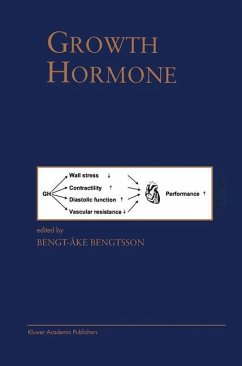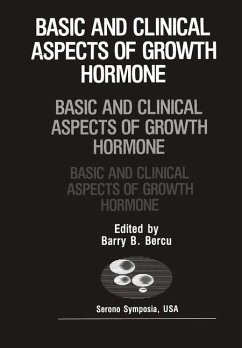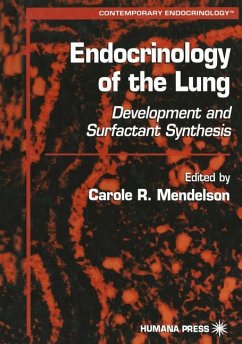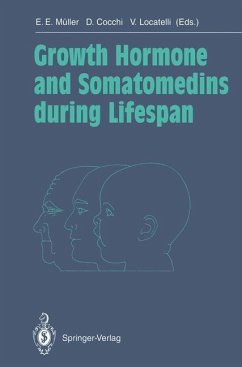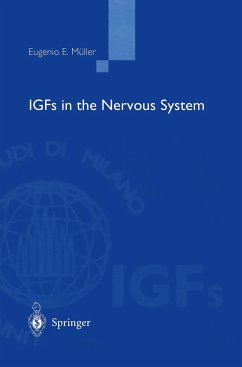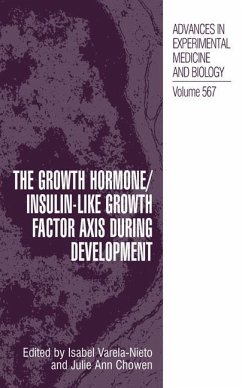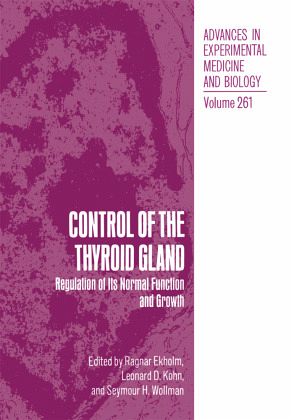
Control of the Thyroid Gland
Regulation of Its Normal Function and Growth

PAYBACK Punkte
39 °P sammeln!
This volume presents the proceedings of a symposium on the "Control of the thyroid gland~ regulation of its normal function and growth," held at the National Insti tutes of Health, Bethesda, Maryland on March 20 and 21, 1989. Our motivation for the organization of this symposium was the fast development in re cent years of our understan ding of the regulation of the thyroid - and the progress in the field of cell regulation in general - which have led to profound modifications of our view of the control of the thyroid. Not so many years aga the thyroid was thought to be controlled by one regul...
This volume presents the proceedings of a symposium on the "Control of the thyroid gland~ regulation of its normal function and growth," held at the National Insti tutes of Health, Bethesda, Maryland on March 20 and 21, 1989. Our motivation for the organization of this symposium was the fast development in re cent years of our understan ding of the regulation of the thyroid - and the progress in the field of cell regulation in general - which have led to profound modifications of our view of the control of the thyroid. Not so many years aga the thyroid was thought to be controlled by one regulator, the pituitary TSH, which with cyclic AMP in the role of second messen ger was considered to express or regulate most or all processes in the gland. In the last several years it has been weIl documented that hormones other than TSH and various growth factors are involved in thyroid growth con trol and it has been increasingly clear that several hor mones and neurogenic agents are obligate participants in the regulation of thyroid function. In addition, not only new agonists acting on the thyroid have been revealed, but new transducer and second messenger systems have been discovered. In particular the interest has been - and is focused on the signals emanating from the hydrolysis of the inositol phospholipids, comprising the inositol tris phosphate/Ca2~ pathway and the diacylglycerol/protein kinase C pathway.





